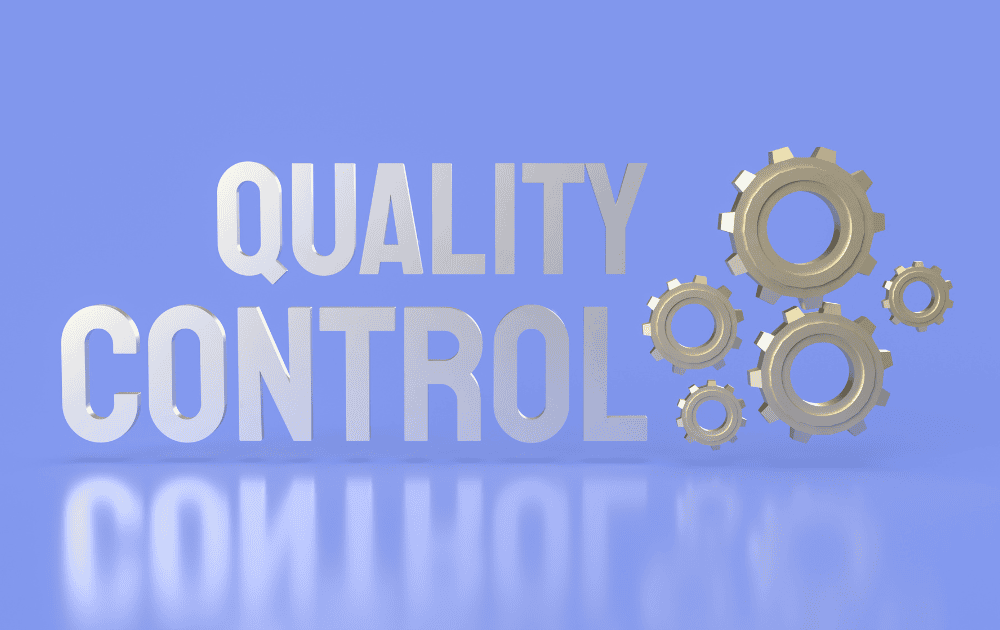In the realm of manufacturing, the integration of Information Technology (IT) solutions plays a pivotal role in streamlining operations and enhancing overall efficiency. Understanding the importance of IT in manufacturing is essential for businesses striving to stay competitive in today's market.
Importance of IT in Manufacturing
IT solutions have revolutionized the manufacturing industry by providing advanced tools and systems to optimize processes, increase productivity, and drive innovation. The integration of IT in manufacturing facilitates real-time data collection, analysis, and decision-making, leading to improved operational efficiency and cost savings.
One of the fundamental aspects of IT in manufacturing is the automation of repetitive tasks, such as inventory management, quality control, and production planning. By leveraging IT solutions, manufacturers can minimize human error, reduce lead times, and enhance accuracy in various manufacturing processes.
Key Benefits of IT Solutions in the Manufacturing Industry
The adoption of IT solutions in the manufacturing sector offers a plethora of benefits that directly impact business performance and competitiveness. Here are some key advantages of implementing IT solutions in manufacturing:
| Benefits of IT Solutions in Manufacturing |
| Improved Operational Efficiency |
| Enhanced Data Accuracy and Analysis |
| Streamlined Production Processes |
| Increased Productivity and Output |
| Better Inventory Management and Cost Control |
| Enhanced Communication and Collaboration |
| Greater Visibility and Transparency in Operations |
| Facilitated Compliance with Industry Regulations |
| Enhanced Decision-Making and Strategic Planning |
Embracing IT solutions tailored to the manufacturing industry's unique needs unlocks numerous benefits that drive growth, efficiency, and success. Leveraging technology fully enables manufacturers to remain agile, competitive, and responsive to evolving market demands.

Inventory Management Systems
In the realm of manufacturing IT solutions, inventory management systems play a pivotal role in streamlining operations and enhancing efficiency. Let's delve into an overview of inventory management systems and the significant benefits they offer to businesses in the manufacturing industry.
Overview of Inventory Management Systems
Inventory management systems are software tools designed to facilitate the tracking, monitoring, and optimization of a company's inventory levels and stock-related processes. These systems provide real-time visibility into inventory movements, stock levels, and supply chain activities, enabling businesses to make informed decisions and maintain optimal inventory levels.
Key functionalities of inventory management systems include:
- Tracking of stock levels and locations
- Inventory forecasting and demand planning
- Order management and replenishment
- Supplier management and procurement
- Barcode and RFID integration for accurate inventory tracking
Centralizing inventory data and automating manual processes allows organizations to mitigate stockouts, reduce excess inventory, and enhance overall inventory accuracy and efficiency.
Benefits of Implementing Inventory Management Solutions
Implementing inventory management solutions offers a plethora of benefits to manufacturers, ranging from cost savings to increased productivity. Let's highlight some of the key advantages of utilizing inventory management systems:
| Benefits | Description |
| Improved Inventory Visibility | Real-time tracking of inventory levels and locations for better decision-making. |
| Enhanced Order Fulfillment | Streamlined order processing and faster fulfillment cycles to meet customer demands efficiently. |
| Inventory Cost Reduction | Optimization of stock levels and reduction of carrying costs by minimizing excess and obsolete inventory. |
| Increased Accuracy and Efficiency | Automation of manual tasks, such as inventory counts, leading to improved accuracy and operational efficiency. |
| Better Demand Forecasting | Data-driven insights enable accurate demand forecasting, reducing stockouts and overstock situations. |
| Regulatory Compliance | Compliance with industry regulations and standards through proper inventory tracking and management systems. |
Harnessing inventory management systems allows manufacturing businesses to optimize supply chain operations, minimize inventory challenges, and drive sustainable growth in a competitive market.

Quality Control Software
In the realm of manufacturing, quality control software plays a pivotal role in ensuring that products meet the desired standards of quality and safety. By incorporating quality control solutions into their processes, businesses can streamline production, minimize defects, and enhance overall customer satisfaction.
Role of Quality Control Software in Manufacturing
Quality control software acts as a safeguard against defects and discrepancies throughout the manufacturing process. It enables companies to monitor and evaluate various aspects of production, including product specifications, compliance requirements, and performance metrics. By establishing stringent quality control measures, organizations can identify issues proactively and implement corrective actions to maintain product consistency and reliability.
Features and Advantages of Quality Control Solutions
Quality control software offers a range of features designed to optimize manufacturing operations and uphold product quality. These features include:
| Feature | Description |
| Real-time Monitoring | Continuous monitoring of production processes to detect deviations and ensure adherence to quality standards. |
| Statistical Analysis | Utilization of statistical tools to analyze data, identify trends, and make informed decisions to enhance quality control processes. |
| Traceability | Ability to trace the origin and history of each product, facilitating quick identification and resolution of quality issues. |
| Automated Alerts | Instant notifications for deviations from set quality parameters, enabling prompt intervention and preventive measures. |
| Document Management | Centralized storage and management of quality-related documentation, such as inspection reports and compliance records. |
The advantages of implementing quality control solutions in manufacturing encompass improved product quality, reduced waste and rework, enhanced efficiency, and regulatory compliance. By leveraging the capabilities of quality control software, businesses can uphold high standards of quality, meet customer expectations, and drive sustainable growth in the competitive manufacturing landscape.

Cybersecurity Measures for Manufacturing IT
In the realm of manufacturing IT, cybersecurity plays a pivotal role in safeguarding sensitive data, operational systems, and intellectual property. Addressing cyber threats in manufacturing is essential to ensure seamless operations and protect critical assets from potential breaches.
Addressing Cyber Threats in Manufacturing
Manufacturing facilities are increasingly becoming targets for cyber attacks due to the valuable information they possess and their interconnected systems. Common cyber threats faced by the manufacturing industry include:
| Type of Cyber Threat | Description |
| Malware | Malicious software designed to disrupt operations or steal sensitive data. |
| Phishing | Deceptive emails or messages used to trick individuals into revealing information. |
| Ransomware | Malware that encrypts data, demanding ransom for decryption keys. |
| Insider Threats | Employees or contractors with malicious intent or unintentional security lapses. |
Understanding these threats and employing proactive measures allows manufacturing businesses to mitigate risks and strengthen their cybersecurity posture.
Importance of Robust Cybersecurity Protocols
Implementing robust cybersecurity protocols is crucial for manufacturing IT environments to protect against potential breaches and intrusions. Some key strategies to enhance cybersecurity in manufacturing include:
| Cybersecurity Measure | Description |
| Network Segmentation | Dividing the network into smaller segments to restrict unauthorized access. |
| Regular Security Updates | Ensuring all software and systems are up to date with the latest security patches. |
| Employee Training | Educating staff on cybersecurity best practices and how to recognize and report threats. |
| Data Encryption | Encrypting sensitive data to prevent unauthorized access in case of data breaches. |
Implementing these cybersecurity measures and staying vigilant against evolving threats can help manufacturing businesses fortify their IT infrastructure and maintain operational resilience against potential cyber risks.
Discover Innovative Manufacturing IT Solutions in Cincinnati
When it comes to manufacturing IT solutions, we at LK Tech are dedicated to delivering top-notch IT services in Cincinnati, Ohio that empower your business to thrive in a digital landscape. Our team excels in creating tailored solutions that enhance efficiency, streamline operations, and drive innovation.
With a keen understanding of industry challenges, we ensure that our services are not only effective but also reliable and scalable. We take pride in our commitment to quality, which sets us apart in the competitive IT landscape. Ready to elevate your manufacturing processes? Contact us today to explore how our expertise can help your business achieve its goals.


